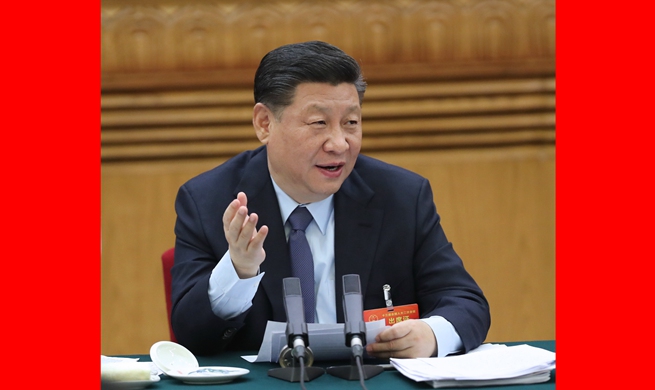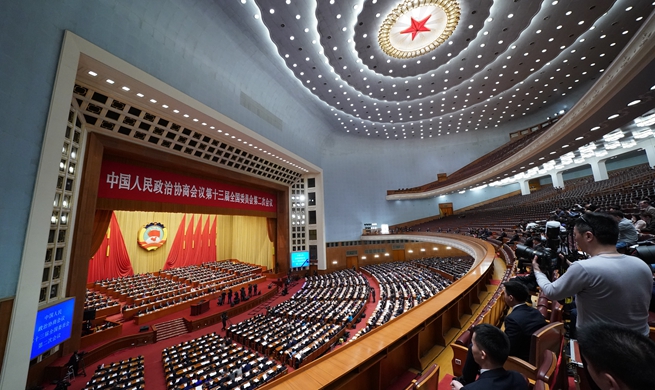LONDON, March 11 (Xinhua) -- Business investment will likely be dragged by Brexit uncertainty in the next few years even if a Brexit deal is passed at the UK parliament, a policymaker at the Bank of England said on Monday.
Jonathan Haskel, external member of the Monetary Policy Committee, made the warning in a speech at the University of Birmingham, a day before parliament members vote on Prime Minister Theresa May's revised Brexit deal.
Haskel said there are two aspects of the Brexit deal that might give rise to heightened uncertainty.
First, the transition period is itself uncertain, Haskel said, because the 21-month transition period specified in the withdrawal agreement, during which trade is business-as-usual, might be extended to four years if the European Union (EU) and the UK both want to.
"It is conceivable that, like Article 50, the UK will require more time than the 21 months. Thus, it is possible there might be another round of negotiating and attendant uncertainty," he said.
Second, the future trade relationship between the UK and the EU is far from certain since it is not covered in the withdrawal agreement and the political declaration only contains the broadest words about wanting a close relationship, Haskel said.
"For business, the question of whether that is a customs union or free-trade area is vital since that gives more of a steer as to whether there will be relatively frictionless trade with the EU or not. This has to be decided so that negotiators can get started and firms can, in turn, make investment plans," Haskel added.
Haskel also mentioned that during the transition period parliament will need to pass a significant volume of domestic legislation, in addition to possibly having to ratify numerous trade agreements which include new trade deals, data sharing and security issues amongst many others.
"At least for the next few years the prospect of low investment seems possible," he concluded.
If May's revised Brexit deal is rejected on Tuesday, parliament members will have a chance to vote on whether they support a no-deal Brexit. If the no-deal option fails to pass, another vote will be held on whether to delay Brexit.












